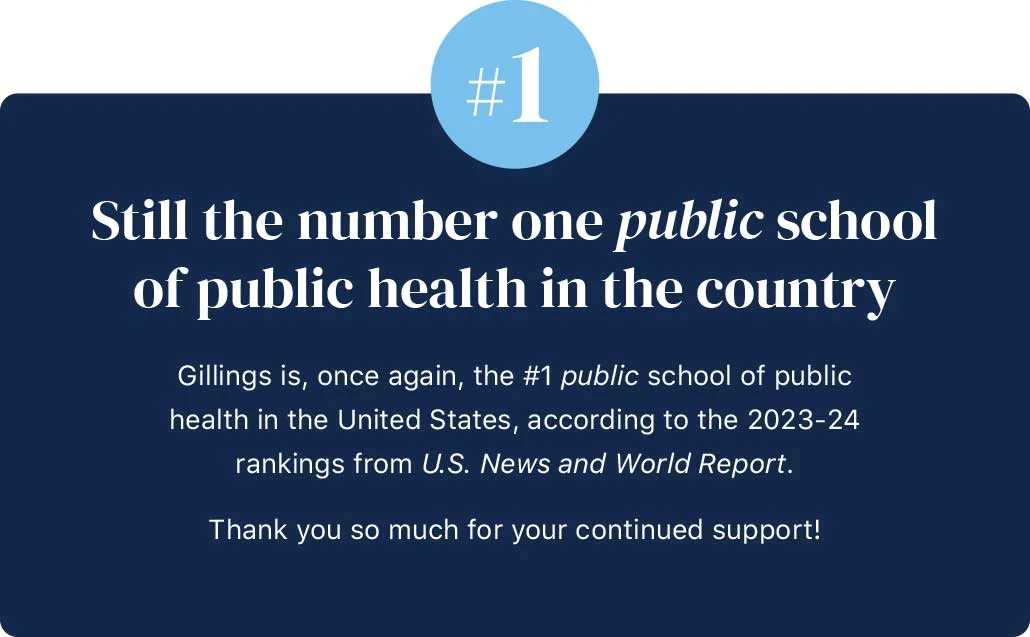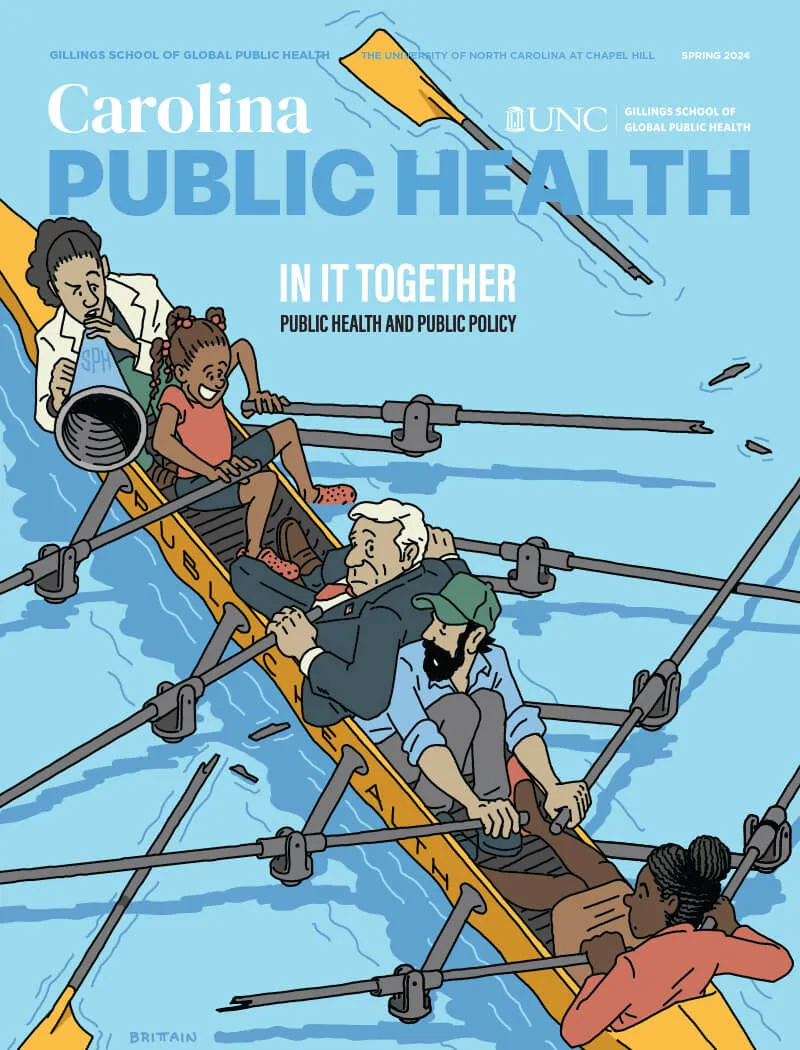Dean Messonnier emphasizes the importance of policy, funding, and social norms in tackling public health challenges and supporting comprehensive solutions.
Policy takes a wide range of forms, from workplace regulations to university guidelines to federal legislation. Essentially, public policy responds to collective needs with a set of recommendations or actions meant to enhance overall well-being.
If that goal sounds familiar, it’s because public health has similar goals — and that’s what we highlight in this issue of Carolina Public Health. Ultimately, successful public health action requires a combination of policy, funding and supportive social norms.
I saw this three-part framework first-hand when I directed the Centers for Disease Control and Prevention’s National Center for Immunization and Respiratory Diseases. When the COVID-19 pandemic arrived, I became the chief architect of the vaccine implementation program and became profoundly aware of how the success of a vaccine rollout hinges on a three-pronged approach.
First, public health research must provide the evidence that informs policy. For example, once researchers prove that a vaccine is effective and safe for different groups of people, policymakers are able to craft official guidance around who should receive the vaccine and in what order.
Second, funding comes into play: Not everyone can afford vaccines, and some families will need the cost offset in order to participate. Additionally, it may take special initiatives to deliver vaccines directly into communities that don’t have easy access to health care centers — this also costs money.
Ultimately, successful public health action requires a combination of policy, funding and supportive social norms.
Third, successful public health efforts rely on supportive social norms. If public health education has been successful, the general population will be familiar with concepts like herd immunity — when enough people are vaccinated against a disease that it cannot easily spread — and want to be vaccinated in order to do their part to protect both loved ones and strangers.
Of course, vaccines are just one example of how policy contributes to public health. At the Gillings School, researchers also study challenges like gun violence, teen vaping, climate change and poor mental health.
Take gun violence: People across the United States passionately disagree on some specifics, like what kind of guns should be available for purchase, but generally agree on other concepts, like the idea of safe gun storage practices as a strategy to prevent suicides and accidental deaths among children.
We already have the research that shows safe storage is effective when it comes to these two goals, and 26 states have either Safe Storage or Child Access Prevention laws (a form of policy) in place. In some places, funding also has been considered — like in Georgia, where a proposed bill with strong bipartisan support aims to waive sales tax on purchases of gun safes.
What is still lacking, however, is more education to make people aware of these policies and initiatives in order to change social norms around what responsible gun ownership looks like. A great example of this in practice is North Carolina’s NC S.A.F.E. initiative, which promotes and educates about safe storage of firearms.
In the end, good public policy is part of a comprehensive approach to achieving better health for all. What’s more, it prepares us to be ready to respond when the next pandemic or other public health crisis arrives. That’s why I’m so heartened by the range of topics you’ll see Gillings School researchers exploring in the pages of this issue.
Dr. Nancy Messonnier
Dean and Bryson Distinguished Professor in Public Health
UNC Gillings School of Global Public Health




